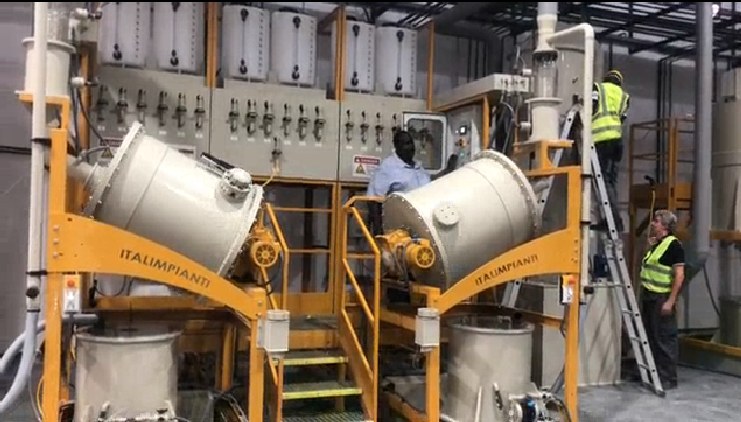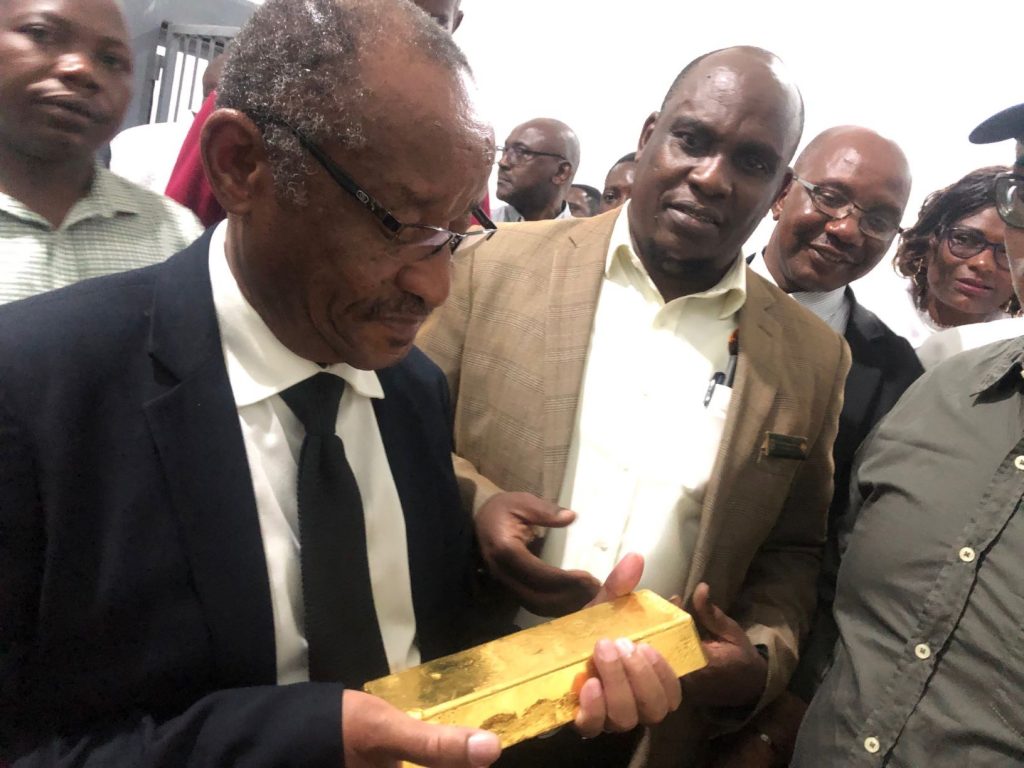
By TZ Business News Staff.
The late President John Pombe Magufuli’s wish to stop raw gold exports out of Tanzania is about to be realized –albeit two months late. Construction of the Tsh 8.9 billion/- gold refinery is complete but the President has not lived to see his dream come true.
Mwanza Precious Minerals Limited at Ilemela district on the fringes of the Lake Victoria City of Mwanza started trial operations on April 21, 2021, about two months since the passing away of the Mastermind.
The refinery has capacity to refine 480 kilograms of gold per day with capacity to refine up to 960 kilograms at full capacity. Construction started in March 2020
In 2017, President John Magufuli banned the export of raw gold, citing the fact that the government was losing a lot of revenue due to poor follow-up on amounts and value of minerals recovered from the sands.
The late President Magufuli underscored the need to invest in smelters in Tanzania instead of exporting sands to recover minerals. He said among nations blessed with large amounts of minerals, only Tanzania shipped its valuable sands abroad.
Tanzania is Africa’s fourth-biggest gold producer after South Africa, Ghana and Mali.
Mwanza Precious Minerals Limited is jointly owned by the Government owned State Mining Corporation (Stamico) 25% stake, and two foreign companies: ROZZELA General LLC of Dubai in the United Arab Emirates (UAE) and ACME Consultant Engineers PTE Limited from Singapore (RGTACE) who jointly own 75% stake.
Dr. Venance Mwasse, STAMICO Managing Director, recently said the refinery plant is the first among three gold refineries currently under construction in the country, according to media reports.
The plant ranks number three in Africa in terms of processing capacity as it can even extend its capacity to 960 kilograms per day.

Mwanza Precious Minerals Limited will create 120 direct jobs to Tanzanians, Dr. Mwasse is quoted as saying, adding that Aqua Regia and Electrolysis gold refining processes will be among technologies to be applied to meet international standards of refining gold by 99.9%.
The Governor of the Bank of Tanzania (BoT), Prof. Florens Luoga, has in the meantime commended Stamico for enabling Tanzania to start gold refining to international standards.
A Bank of Tanzania press release says the Governor made the remarks after visiting the gold refinery on Friday, April 30, 2021 when he witnessed the developments of the plant including trial production.
The Governor also expressed delight to hear that the refinery is capable of extracting other valuable minerals from the gold concentrates.
SERVICE TO NEIGHBORING COUNTRIES
The Governor added: “Given the production capacity of this plant, I believe that it will be able to refine all locally mined gold as well as those from neighbouring countries. These will bear the originality mark from Tanzania, and hence promote Tanzania overseas.”
During the visit, Dr. Venance Mwasse of STAMICO told Governor Luoga that Stamico shares in this joint venture will continue to increase at the rate of 5% and after 15 years, the state-owned mining company will own 51% stake, reducing those of foreign companies to 49%. Stamico will also be getting 2.5% from total sales as management fee.

Dr. Mwasse mentioned benefits of the refinery as including increased revenue to government through inspection fees, local government levies, generation of employment, technology transfer and reduction of gold smuggling.
Governor Luoga, who was accompanied by other Bank of Tanzania officials, urged the refinery to acquire the accreditation certificate to enable the Bank to start buying the refined gold to make it part of its foreign reserves.
The refinery is strategically located in a gold-rich zone since the precious metal is abundant in Geita, Mara, Shinyanga and Mwanza regions.
The plant is expected to refine gold from both small and big miners, gold from neighboring countries through gold dealers and any gold which might be confiscated by the Government.



